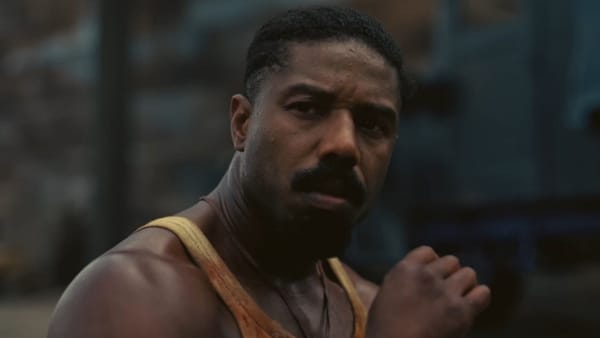There's Good News and Bad News, Part I

Hello reader! It's been quite some time since I have been able to pump out another Arachne banger. I felt like there wasn't enough out there for me to really put my spin on, and didn't want to sacrifice the quality of what I strive to create.
To catch you up, the tech world is mostly playing the hits right now. Meta is offering hundreds of millions of dollars to poach OpenAI engineers. Jeff Bezos had an elaborate, successfully protested wedding in Venice where everyone dressed terribly. "MechaHitler" is bringing the Fourth Reich to Twitter. The classics. In the world of Big Media, things are unprecedented but not unexpected. Paramount settled with the president over some bullshit, and they swear (they swear) it's not a bribe. The New York Times is getting cited in conservative opinions at the Supreme Court. HBO Max is HBO Max again.
Broadly speaking, the vibes are not great. And I haven't even gotten to something called "Alligator Alcatraz."
From the jump, one of the goals of this newsletter has been to empower readers through persuasive storytelling to take more control of their citizenship in a technological world. So to do that today, I want to talk about an urgent and underreported issue in the news media.
A few weeks ago, a man in Minnesota dressed up as a cop, entered the homes of two different Minnesota state legislators, and shot them. Former speaker of the Minnesota house of representatives Melissa Hortman, her husband Mark, and their dog Gilbert were all murdered. Representative John Hoffman and his wife Yvette were also shot. Yvette left the hospital soon after, and Representative Hoffman was only released yesterday. At 2:36am the morning of the shooting, officers saw the shooter's SUV at a different home but, making only the cursory glances befitting an American police force, kept their car rolling only to find the SUV gone upon circling back. Its next location was Hortman's home.
When this story unfolded on June 14, it attracted a wide breadth of attention. There was good faith investigative reporting that sought to understand what had occurred, but there was also garbage. Tributes were created in honor of Representative Hortman, GoFundMes were set up for the Hoffmans, and Governor Tim Walz took to the podium to express his profound sadness with what had occurred here.
Consider the following: When Luigi Mangione (allegedly) took out a pretty justifiable ideology in an extremist way, what followed were weeks of think pieces, news segments condemning the action, fan fiction, and pearl clutching. Ten days after he was identified, a fully produced 20/20 doc had been produced. You can watch it on Hulu! In the seven months since, his face still shows up on news feeds and on televisions.
It's been 25 days since the assassination and attempted assassinations of multiple Democratic state lawmakers, their families, and their pets. Off the top of your head, can you tell me the assassin's name?
There is an inherent imbalance between what gets attention and what deserves attention in our American media and news ecosystem. This is symptomatic of a deep malaise, a syndrome so unwieldy it's really hard to diagnose. But I want to make an attempt.
How we got here
As with most of modern America's failures, this one can go back to Ronald Reagan. It used to be that the only way to "broadcast" anything was over radio waves. For reasons including national security and air traffic safety, the federal government, via the FCC, was in charge of licensing out bandwidth.
Because the bandwidth was seen as a public utility, the government saw it as important that broadcasters adhere to a "fairness doctrine." This doctrine had two main elements: that broadcasters devote airtime to issues of public importance and that contrasting viewpoints on the issues were presented. Obviously, the government regulating a platform for speech is a big-flashing-lights-uh-oh-danger-danger-red-alert for the First Amendment. But! In 1969, the Supreme Court upheld the constitutionality of the fairness doctrine in a unanimous decision, rejecting the case that it was a violation of the First Amendment.
By the 1980s, the technology for media proliferation had grown beyond just radio, welcoming new modes of news and entertainment that were not explicitly under FCC purview. Facing scrutiny from the Reagan administration and Congress, the FCC voted to revoke the fairness doctrine in a 4-0 chairperson vote.
Without the doctrine in place, in 1988 a guy named Rush Limbaugh was able to hawk conspiracy theories, cruelty toward women and minorities, and general douchebaggery and get advertisers to pay for him to do it. A new model was born.
I should say before moving on that I am not necessarily saying that the fairness doctrine was an unfettered good. Kennedy and Johnson misused it to target conservative media in the 60s. That's bad!
Why we got here
The shortest possible answer I can give you is one keystroke: $. The deregulation of the fairness doctrine, the proliferation of cable, and the expansion of the internet offered entirely new frontiers for big business to capitalize. The influx of advertising and subscriber dollars, as well as the investment of boom time 80s money lenders, exploded the media industries. Whereas under the fairness doctrine, news was meant to be a public utility and its broadcasters limited in their ability to editorialize, now the news was a product that could be bought and sold. In the mid-90s there were enough dollars and eyeballs in the ecosystem to support multiple 24 hour news channels.
Meanwhile, print media begins a long slog to irrelevance once AOL brings more and more people to a digital news environment. Since the internet was mostly able to become ubiquitous without much intervention, companies like Google and Facebook were able to capture control of the advertising experience, the money faucet that makes the whole consumer internet possible.
Under a model in which individual consumers are responsible for funding the media they consume - either with their attention or with their dollars - the civic sense of responsibility to provide the public with quality reporting and journalism eroded. It has eroded so much that Sesame Street, once America's greatest public broadcasting success story, can barely find a home for people to watch it.
There was never a time in which American news and media was free from corporate interests, and frankly I'm not even advocating for one that is. But the environment we have now is so consolidated around certain priorities that multiple elected officials and their families can be doxxed, shot, or hammered in the head and the beat just goes on.
Where to go from here
In Part II of this piece I want to offer some specific tips for how you can both adjust your news consumption to be more civic minded and encourage others to do so. For now, here's some general thoughts.
The Trump administration has already created such an environment of fear amongst the largest media players that they are willing to shirk integrity that, in some cases, they have built up for decades + a few million dollars in exchange for reduced antitrust scrutiny and a con man's promise he won't sue you. As demonstrated by the missteps of outlets like the New York Times, the Washington Post, or the LA Times and of platforms like Google, TikTok, and Twitter, real change here will not come from the top. The future of how you individually and all of us collectively get our news must come from a decentralized, citizen-led effort. More on that in the next piece.
In the future I am fighting for we are all more literate and more civic minded. As many variables as there are in play, I sincerely believe that a groundswell of thoughtful people can shift how the attention getters are received in our media ecosystem. As I've written before, they need us to make the whole thing work.
We have to believe in a better version of what we've got.





